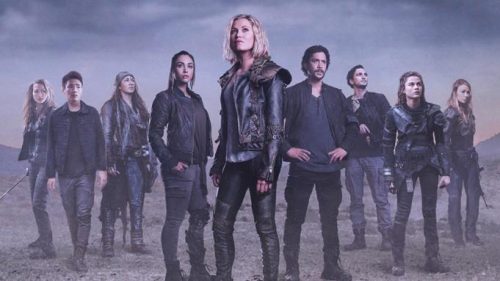With the December monthly reading list, I’ve added some TV shows! I’ve been starting and finishing a few shows lately. It just so happens that things came together recently and I finished three great shows.
Books
Svetlana Alexievich – Secondhand Time: The Last of the Soviets
Alexievich interviewed dozens of Russians from the early 1990s through the early 2000s. She wanted to see how they did through a turbulent period in Russian history: the fall of the Soviet Union through the failure of capitalism and the renewed authoritarianism of Vladimir Putin.
The human stories alone make the book worth reading. They’re intersecting stories of overcoming tough times, but many common themes emerge. Most of the Russians she interviewed were excited about the fall of the Soviet Union. However, few of them hated socialism itself. They hated Soviet socialism. Most Russians in the Gorbachev era just wanted a more democratic and inclusive form of socialism.
Few people enjoyed the actual outcome: hyper-capitalism, oligarchy, and no more democratic inclusion than before.
Margaret Atwood – The Testaments
Some time ago, I was disappointed to discover I had never read Atwood’s The Handmaid’s Tale. After reading it, I thought I’d continue and read its sequel.
The Testaments allows Atwood to explore the fictional universe of Gilead without explaining it from the beginning. She assumes, of course, that readers read the first novel. And then she uses the opportunity to expand the perspectives from which readers view that universe. Atwood tells this story from the perspective of several social classes in that world, not only handmaids.
And so, I wouldn’t recommend this book to anyone unfamiliar with the first novel. But any reader of that novel who wants to explore the world in more detail? It’s a good read.
Lou Gehrig and Alan D. Gaff – Lou Gehrig: The Lost Memoir
The basic sales pitch here is that Lou Gehrig wrote a memoir that was lost to history and later rediscovered. Is that true? Sort of. Gehrig ‘wrote’ a series of newspaper columns about his own life during his playing days. The columns were likely ghostwritten after interviews with Gehrig.
And so, the sales pitch doesn’t quite work. But the rediscovered newspaper columns are interesting enough. In reading them, one gets a feel for the life of a 1920s and 1930s baseball player. And the voice that comes through the text is a consistent and interesting one.
Hari Kunzru – Red Pill: A Novel
This one’s surprisingly topical. Kunzru’s novel depicts a contemporary liberal intellectual who wants to get away from the family for a writing retreat. Along the way, he encounters his own demons and his own liberal bubble. By the end of the novel, he becomes obsessed with a character who acts suspiciously like Steve Bannon and ends up in a psychiatric hospital.
TV Shows
Orange is the New Black, Season 7
I assume most readers are familiar with OITNB. And I realize people debate whether it handles effectively or sensationalizes this or that aspect of the prison system. I don’t have a lot to add to that part of the discussion, except to say that I enjoyed the show.
Season 7 ended the show, and the ending stood out as…appropriate. Piper got out of prison in Season 6. She’s putting her life together. Along the way, she makes bad decisions.
That’s vintage OITNB and very reminiscent of Seasons 1 and 2. Yes, the show still follows other characters. And some of those characters are more compelling than Piper. But, in the final season, the show trims things a bit from its bloated middle seasons.
Haven’t seen it yet? Find Season 1 and give it a shot!
The 100, Season 7
Much like OITNB, I recently watched the seventh and final season of The 100. But this one’s a bit less popular, so maybe readers haven’t heard of it. I can only describe it as ‘post-apocalyptic, sci-fi teen drama.’
The basic premise: Earth goes to hell quickly in a nuclear war. Several hundred years later, the remains of humanity float over the ruined Earth in a space station. However, the station’s running out of air and leaders decide to send a hundred problem teenagers to the surface to discover whether it’s survivable.
That’s where it starts, anyway. They jettison bits and pieces of the premise. By Season 3 or 4, everything’s different. And by Season 6, they’re on another planet. Shit gets wild.
Things get implausible, but overall I enjoyed the show. For anyone starting from the beginning, keep working through the first season. The first half of Season 1 is heavy on the teen drama. The show gets much better after they tone it down.
The Man in the High Castle, Seasons 1-4 (Entire Show)
Many a filmmaker succeeded with Philip K. Dick stories. How about a TV show? Sure.
This one’s an alternate history where the Axis wins World War II. Nazi Germany and Imperial Japan conquer the planet, developing a fascist world. The story then picks up this world in the 1960s in what remains of the United States. The Axis powers divided it between a Nazi East Coast and Japanese West Coast.
Mostly I find it appalling how little actually changes from this world to the real U.S. in the 1960s. Racism against black Americans is a huge problem in both worlds. Pop culture is still dominated by a white ‘middle class,’ and so on. The eugenics, anti-Semitism, political disappearances, et al., of the Nazis and the Japanese just sort of plop down in the middle of white-bread American culture.
